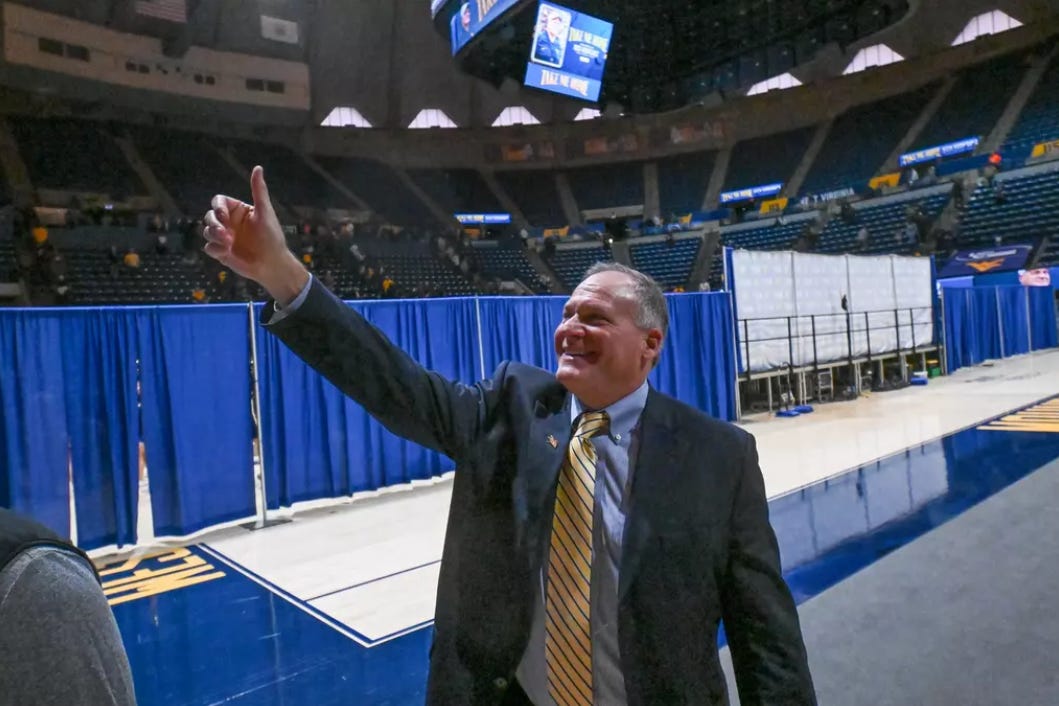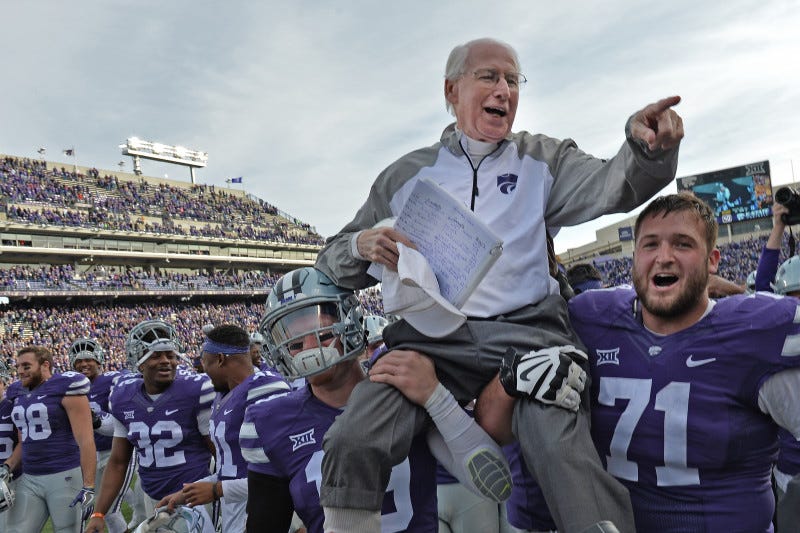The problem with nostalgia hires
West Virginia and UCF brought back Rich Rodriguez and Scott Frost to try to recapture old glory. The history of such moves isn't encouraging
Outside of the most decorated coach in NFL history suddenly and unexpectedly deciding he wanted to take his first college coaching job at the ripe age of 72 – a huge qualifier up there with “Other than that, Mrs. Lincoln, how was the play?” – the 2024 college football coaching carousel was relatively uneventful.
“Bill Belichick, North Carolina head coach” is a phrase that isn’t any less shocking now than it was two months ago when it was formalized, but beyond that business card becoming a reality, there wasn’t much pizazz.
The Tar Heels, who haven’t won a conference title since 1980, were arguably the highest-profile program to have an opening. For the first time in six years, the SEC didn’t have any coaching changes. Only five of the 67 Power Four programs hired a new coach.
If there was any kind of throughline to be found in this cycle, it was schools trying to turn back the clock and bringing in a successful coach from the program’s not-so-distant past.
Rich Rodriguez, the architect of West Virginia’s electric Pat-White-and-Steve-Slaton-led teams of the mid-2000s, is back in charge of the Mountaineers after a nearly two-decade absence. Elsewhere in the Big 12, UCF brought back Scott Frost, who led the Golden Knights to a rapid improvement over a whirlwind two-year tenure that ended with an undefeated team and, depending on who you ask, a national championship.
These newly forged reunions came right as another one ended, with Belichick’s predecessor, Mack Brown, getting the boot six years into his second go-around in Chapel Hill (miraculously, North Carolina managed to replace its 73-year-old outgoing coach with someone who will be just as old by the start of the 2025 season).
Even if the logic behind these hires isn’t fool-proof, you can at least understand where university brass is coming from when they do this. These were men who were previously successful at the school and are remembered fondly by the same boosters who write big checks and fans who are counted on to fill up stadiums.
But does it work?
After digging into the history of similar hires at the FBS level, here’s what I found:
(If you subscribe to the fine folks over at Split Zone Duo, they did an episode on this a month ago that’s worth checking out)
Does bringing back an old coach pay off?
Before diving into the answer to that question, I only considered coaches from the past 50 years since I wanted whatever lessons that came from this to be at least somewhat relevant. Many of the dozens of repeat hires came around World War II, when coaches would leave their posts to serve in the American military before some came back to the sideline in their return to civilian life. This exercise is also limited to current FBS schools, though some of these coaches’ first stints at their respective institutions came when they were FCS members.
More often than not, what seems like a good idea generally isn’t.
In this post-war era, 19 different men have served two different, non-consecutive stints at a single school, often leaving for another position only to later return. In their first go-arounds, those coaches won an average of 63.8% of their games. In their encores, that average fell more than 10 full percentage points, to 53.3%.
Only four of those 19 coaches won a higher percentage of games in their second tenures than their first. Ten of the 15 coaches with a worse win percentage saw a drop of at least 10 percentage points, including seven who endured a drop of at least 20 percentage points. Sometimes, it’s not just worse, but something closer to disastrous.
Any hopes of long, sustained success and stability usually don’t come to fruition, either. The average length of a first tenure was 5.6 years while the average length of the reunion is 4.8 years, the latter of which is particularly low considering the built-in equity and goodwill many of these men racked up from their initial stop at the school.
As with anything, there are levels to this. There were flops, sure, but there were success stories, as well as instances in which the coach’s return fell somewhere in between those two categories.
Let’s dive into them:
The successes
Bill Snyder, Kansas State: It’s sacrilege to say someone other than Nick Saban or Bear Bryant is the greatest coach in college football history, but there’s an argument that Snyder, at the very least, belongs in the conversation as one of the greatest to ever do it. Kansas State had one all-time bowl appearance and losing records in 16 of the 17 seasons before he was hired after the 1988 season. By his fifth season, he won nine games and proceeded to win at least that many games in nine of the next 10 seasons. After the Wildcats went 17-20 in three seasons without him, he returned and had them at 10-3 by his third season. Simply one of the greatest to ever do it.
Keep reading with a 7-day free trial
Subscribe to The Front Porch to keep reading this post and get 7 days of free access to the full post archives.






